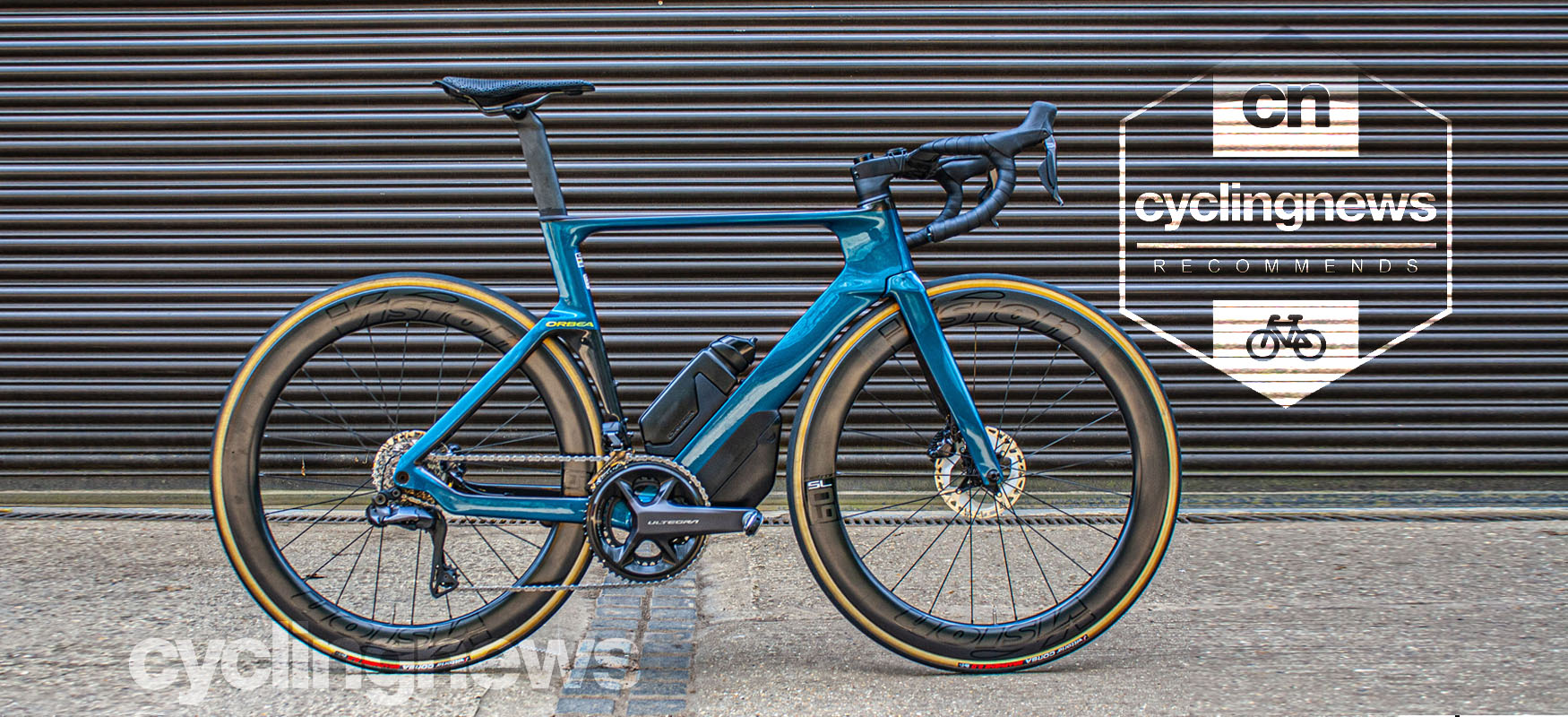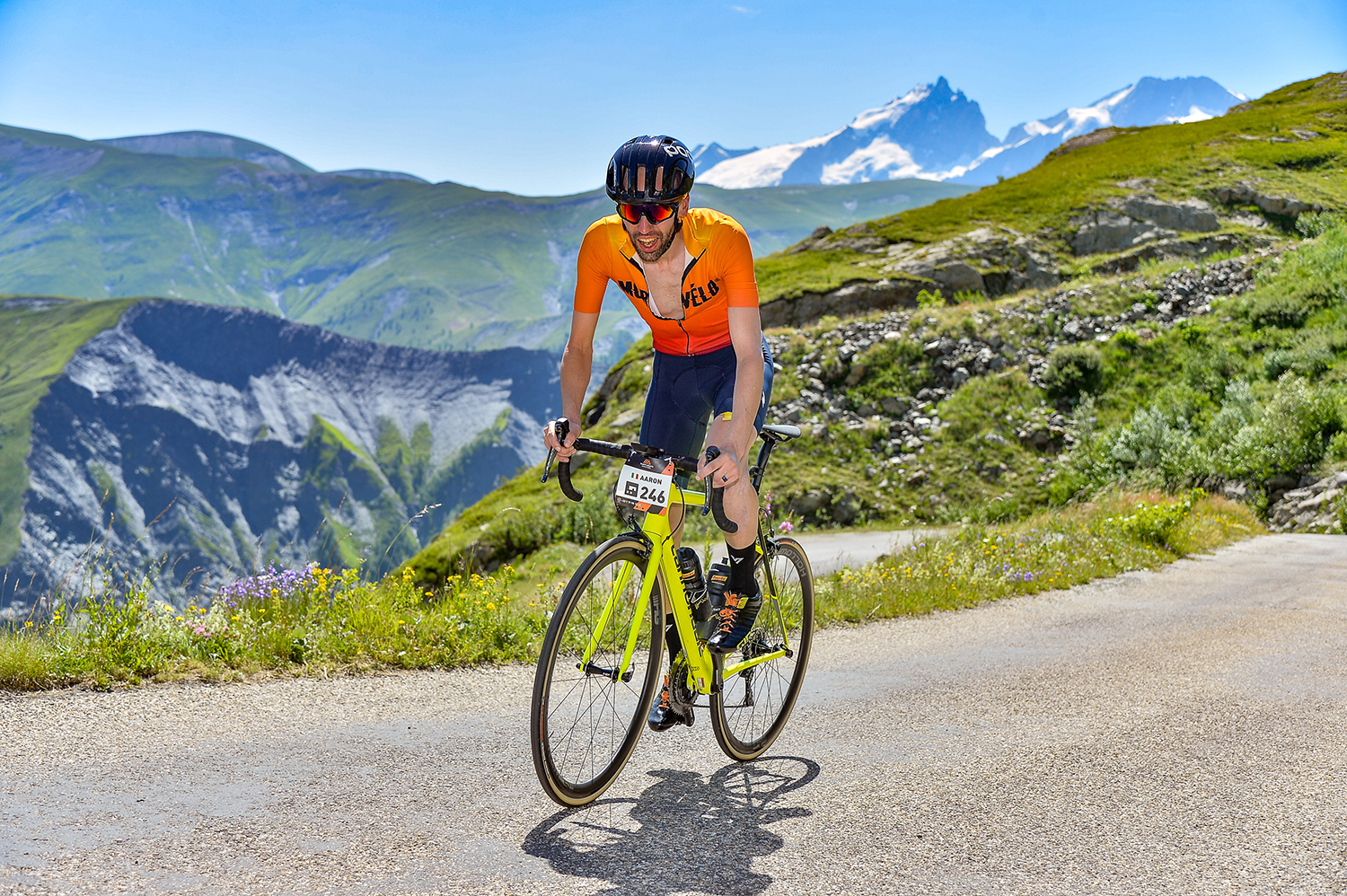Cyclingnews Verdict
A well-balanced and incredibly fast road bike that weighs more than it should
Pros
- +
Beautiful paintwork
- +
Typical Orbea build quality
- +
Incredible straight-line speed
- +
One of the best in-class ride qualities
- +
Sharp, reactive handling
- +
Good price point
Cons
- -
Anonymous branding won't appeal to all
- -
Heavy
You can trust Cyclingnews
Orbea has expanded its product offering with a throng of new releases over the past year, covering both the road and gravel bike space. The quest to go faster for less energy has become a fundamental tenet of contemporary road bike design, with every manufacturer following the now de rigueur dropped seatstay and Kammtail tubing blueprint.
Orbea has taken things one step further in the pursuit of speed by combining elements of two of its foremost product offerings - the Orca road and Ordu time trial bike. The result is the bike you see here, the all-new Orbea Orca Aero.
Described by the Basque brand as the 'most aero bike it has ever made' the Orca Aero will be going up against some of the best aero road bikes around, the Cannondale SystemSix, Merida Reacto, Specialized Tarmac SL7 and Trek Madone to name but a few.
In a segment that is defined by speed and compliance rather than climbing prowess, can the Orbea Orca Aero find a place among the perennial favourites?
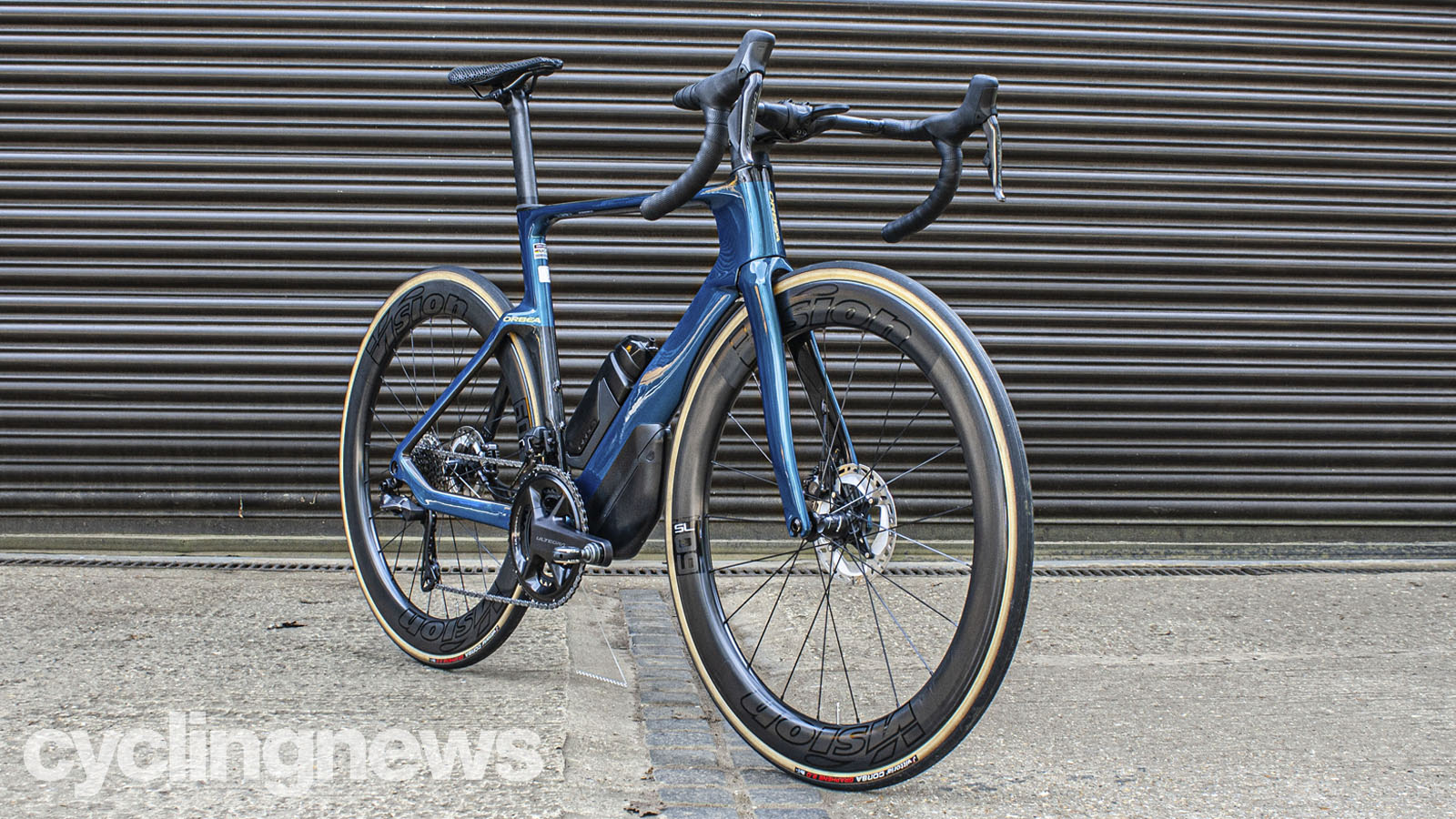
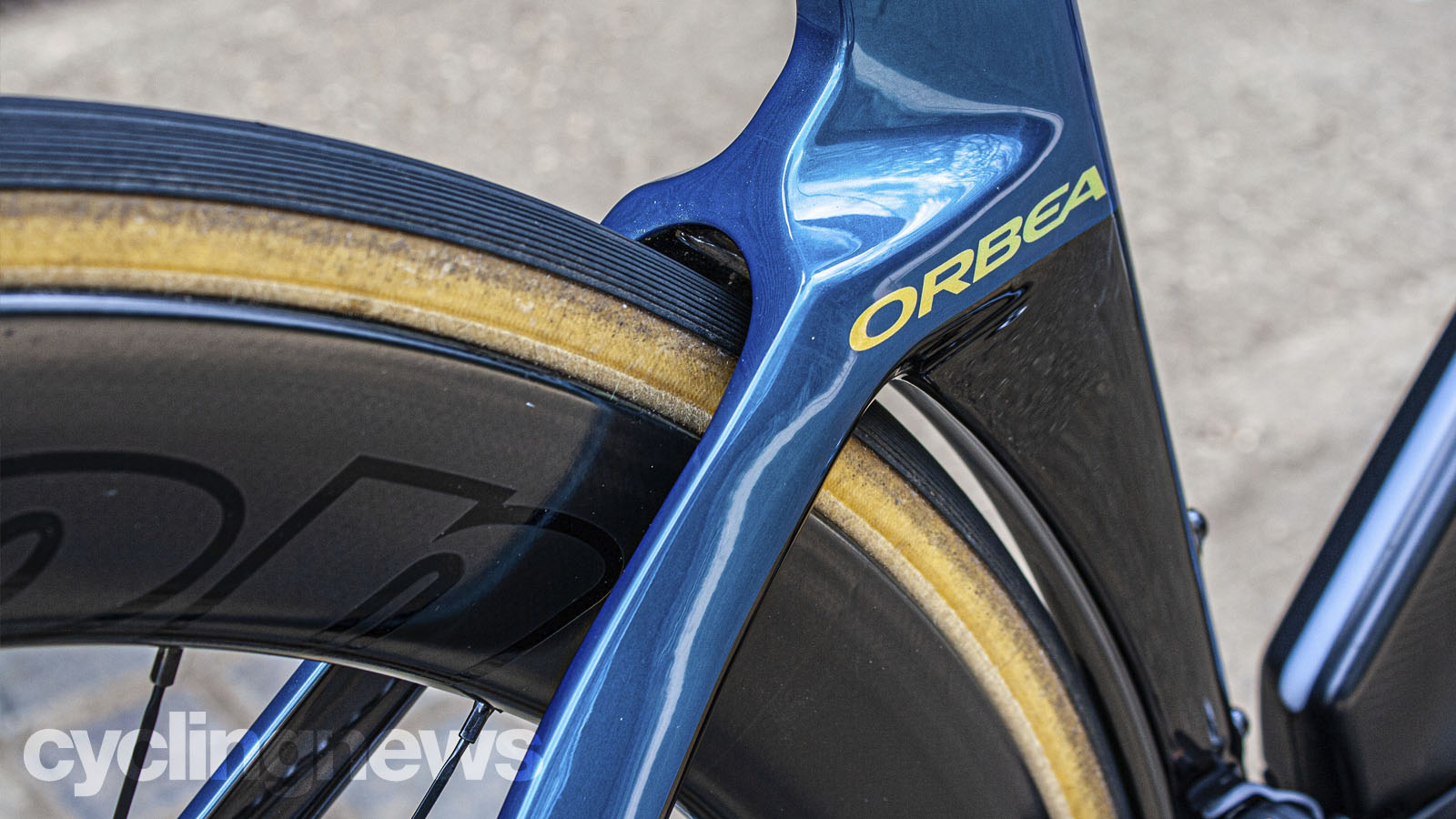
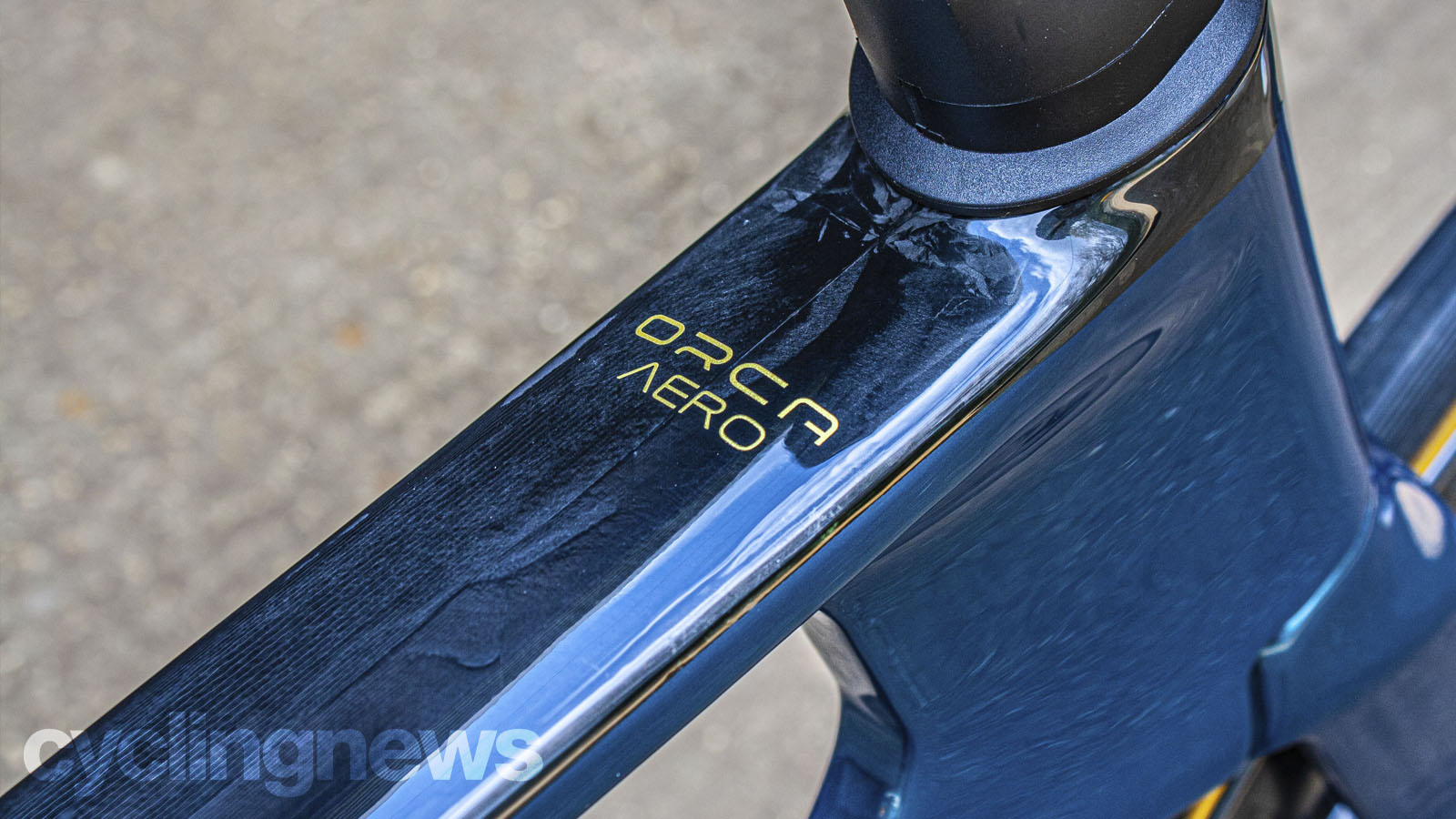
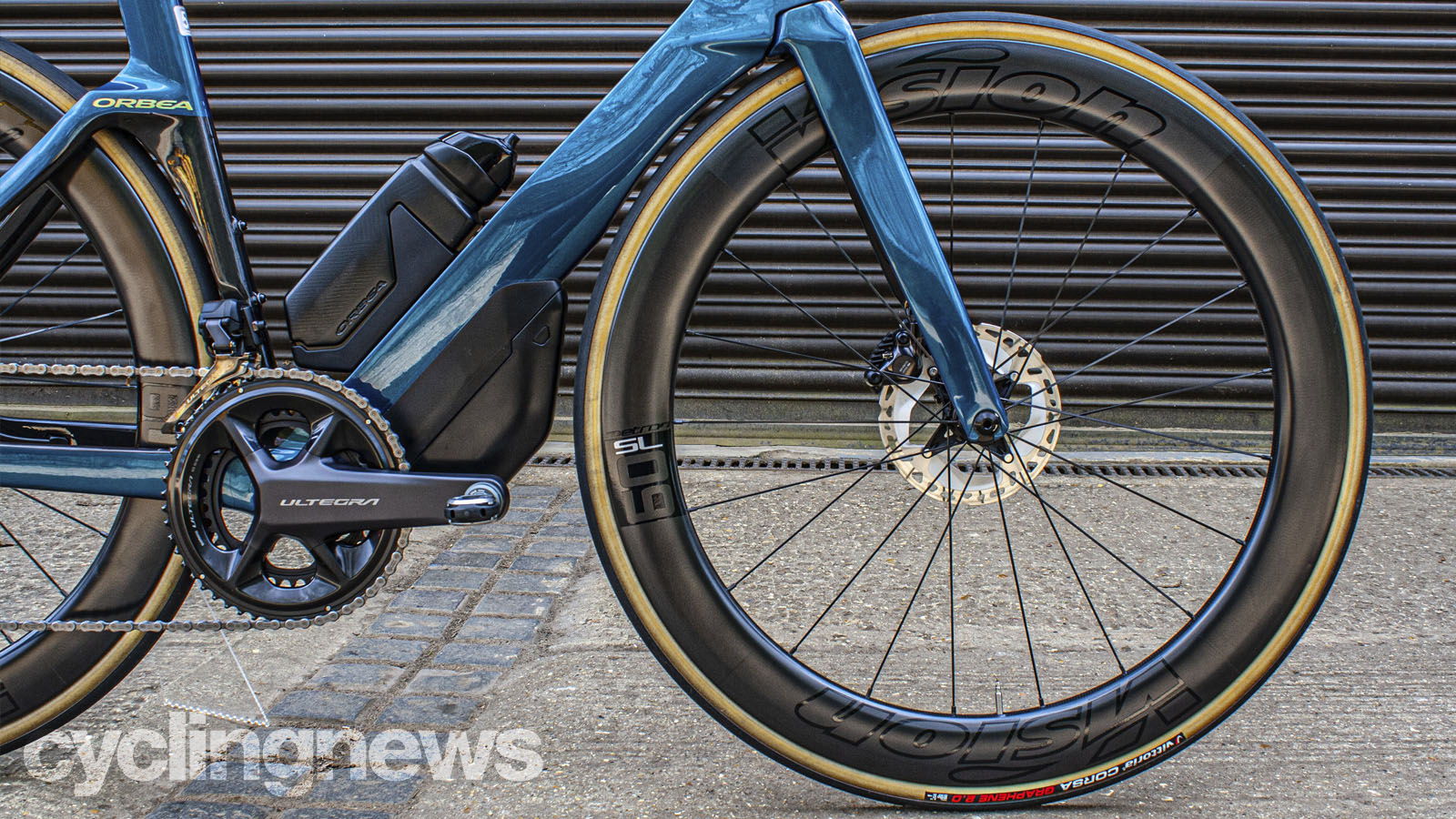
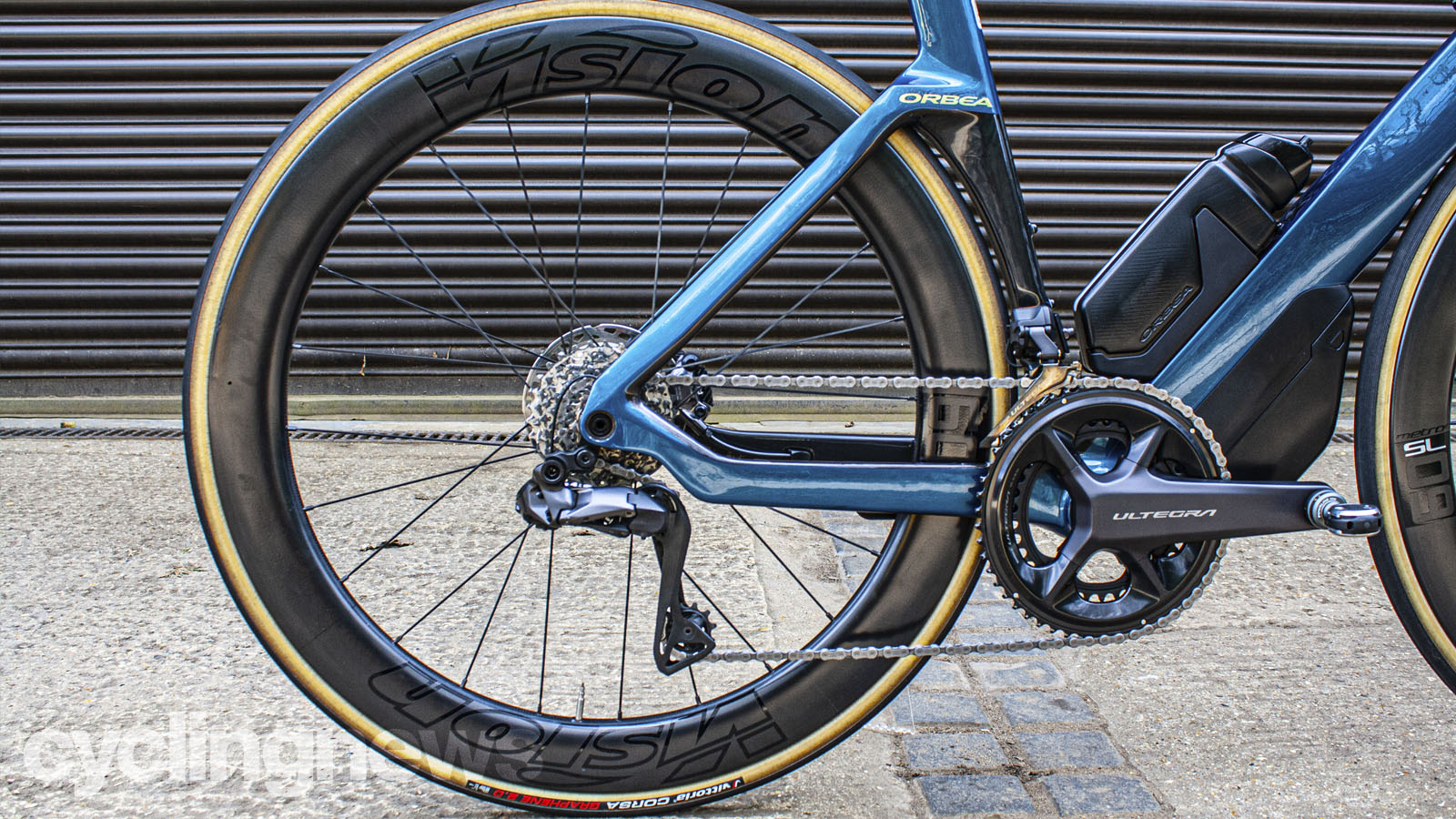
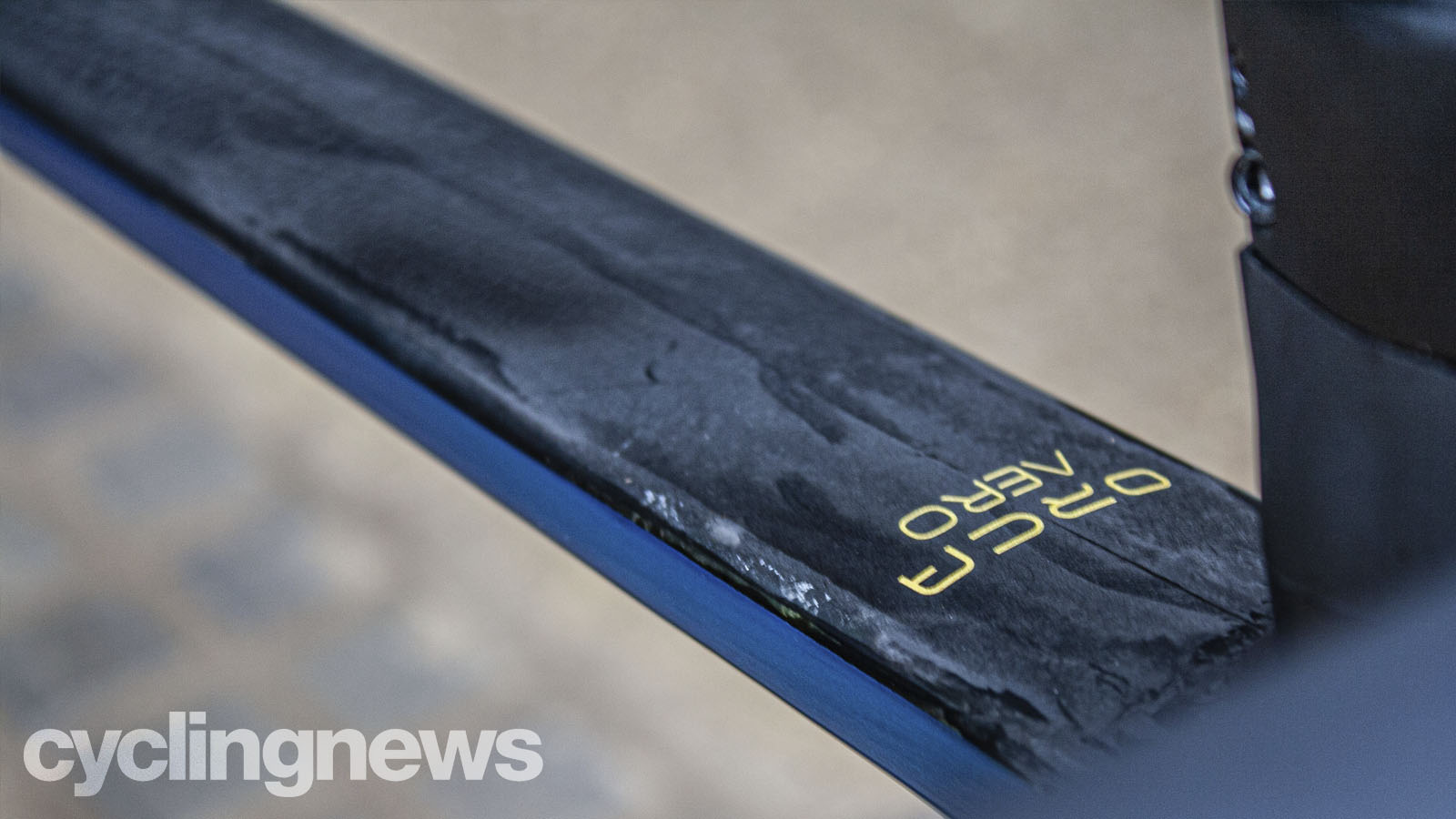
Design and aesthetics
Unlike the bulk of Orbea's current range, the Orca Aero cuts an almost anonymous profile with very little in the way of branding. Closer inspection however, reveals a brace of gold Orbea wordmark logos, just above the cutline on each side of seatstays while a solitary Orca Aero graphic - also finished in gold - takes up residence on the top tube near the stem. While generic in appearance, the Orca Aero does at least benefit from a superb colourway (one of five hues specific to this derivative) which melds a metallic teal with raw, exposed carbon sections along the top tube and below the seatstay. Orbea calls this paint scheme borealis blue/carbon raw and I think it looks spectacular - especially with contrasting gold accents.
Thanks to the internal routing in the frame and handlebar arrangement, the aesthetic is cable-free, which promotes a cleaner appearance.
In terms of design, it shares much of its DNA with the Ordu time trial bike upon which it's based, so it gets a similar horizontal top tube and shaping treatment around the headtube and downtube, as well as the in-house-developed aero bottle cage and frame storage system which fills the gap between the front wheel and down tube. This bottle/storage system, according to Orbea, has improved aerodynamics by three per cent - but only the aero bottle has been deemed legal by the UCI. It's not too pretty either, to be honest, but it is useful and can be completely removed if not to your taste.
The latest race content, interviews, features, reviews and expert buying guides, direct to your inbox!
While the range spans seven sizes, the geometry follows a somewhat different blueprint than the model it replaces. As such, it benefits from a lower stack height and shorter head tube while the lowered, kinked chainstay configuration has culminated in a bigger bottom bracket drop - all of which has, according to Orbea, improved stability and outright speed. The brand claims a 15w improvement at 40km/h and 28w at 50km/h over the outgoing model.
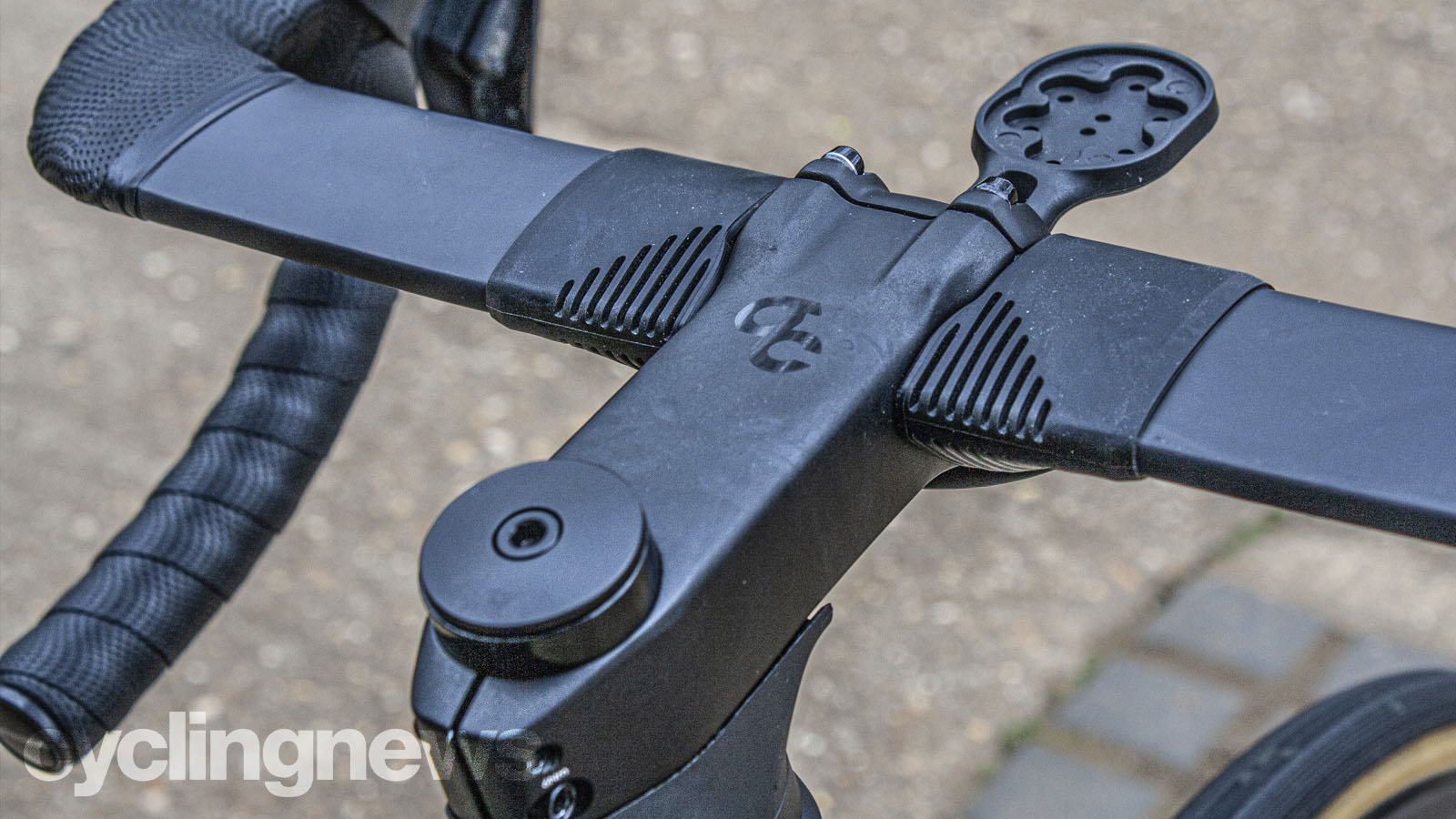
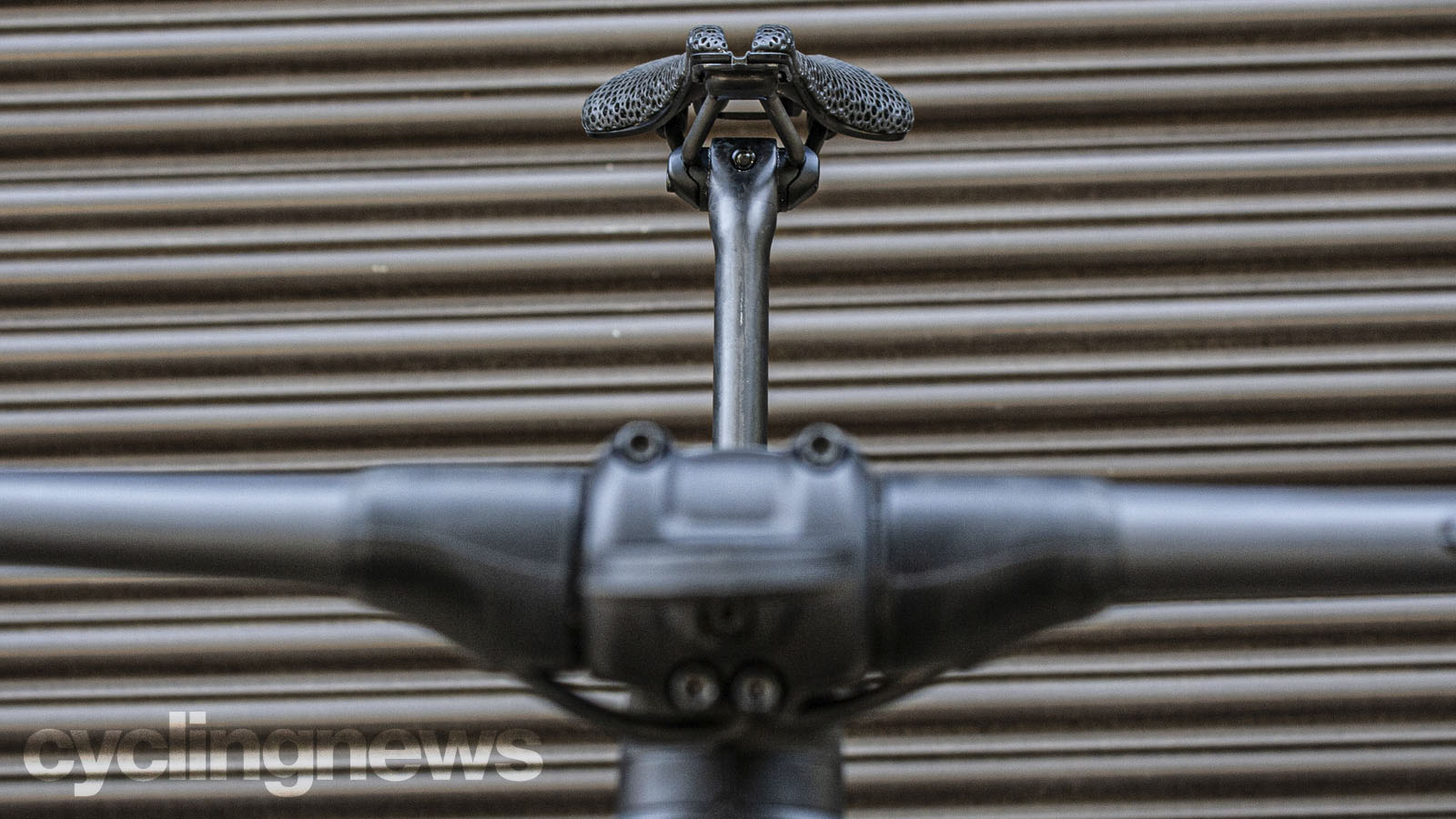
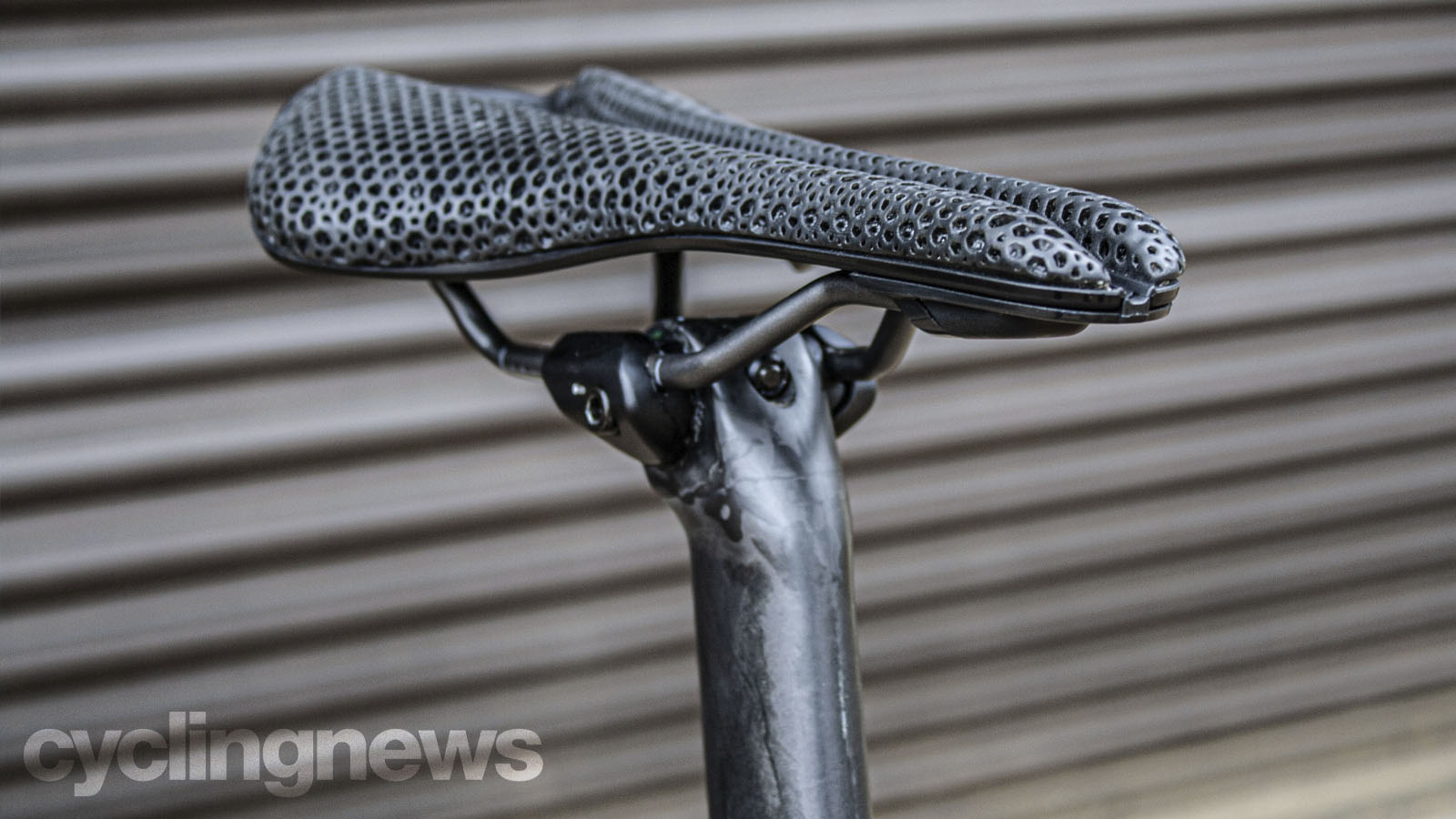
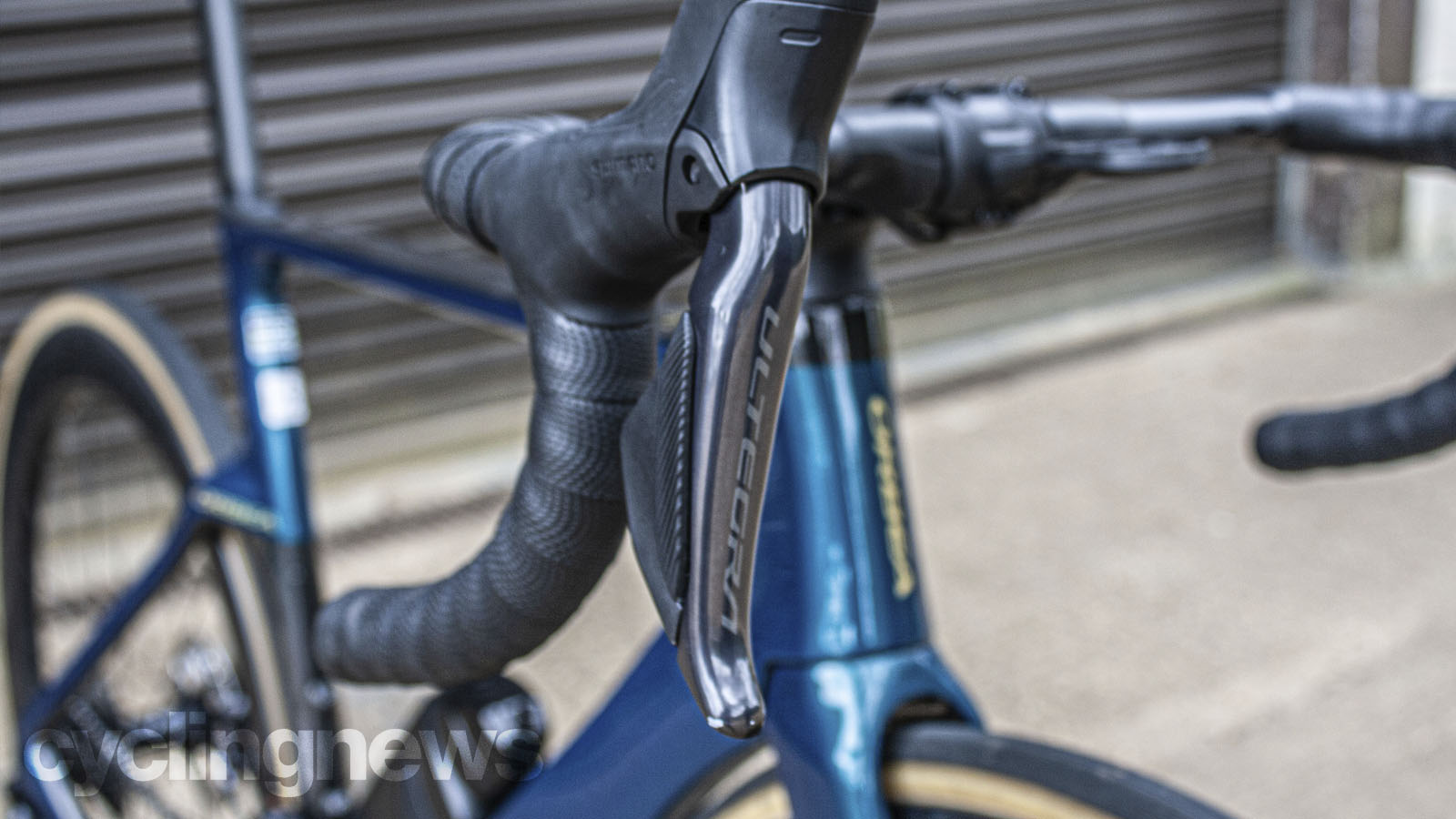
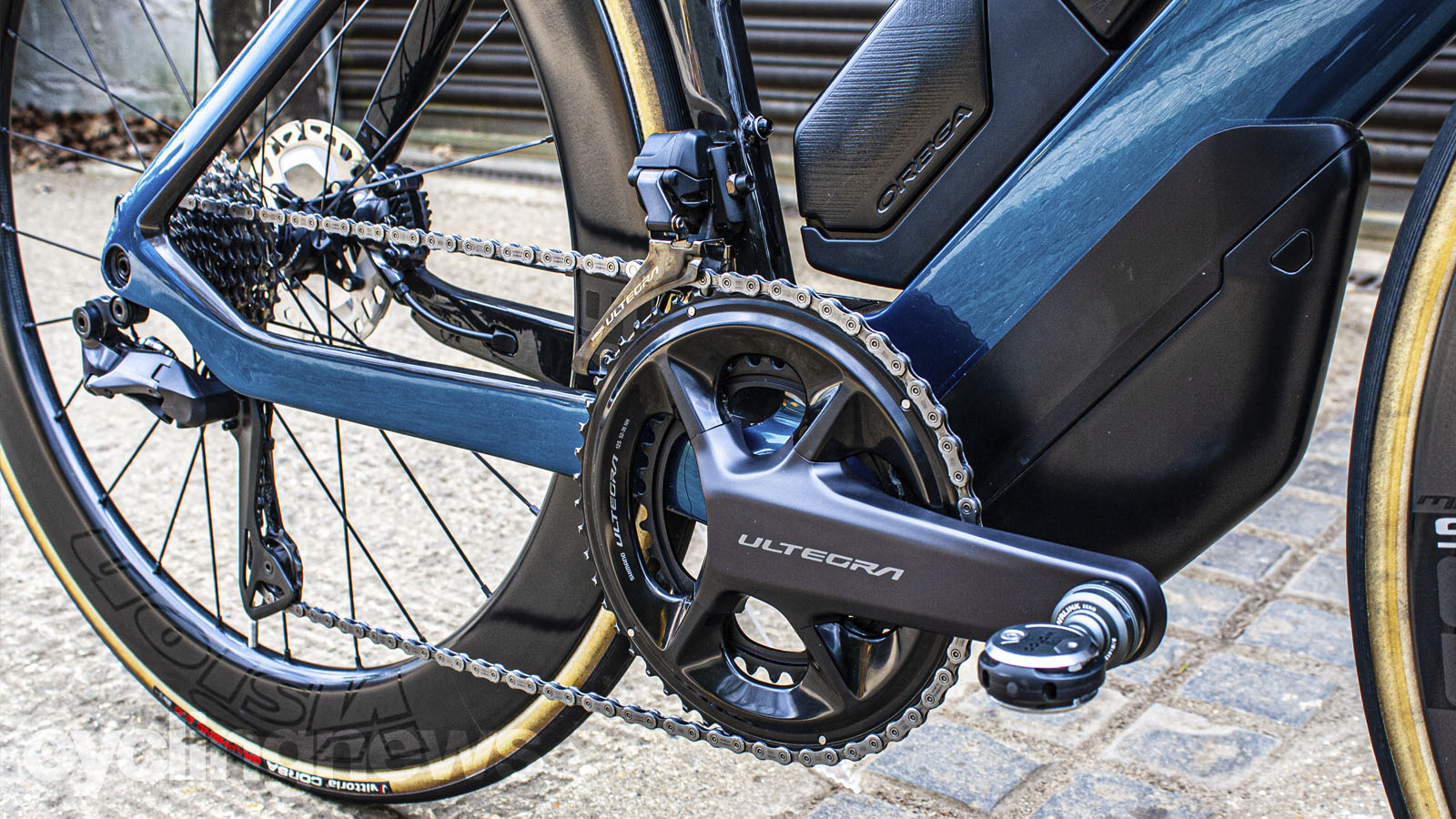
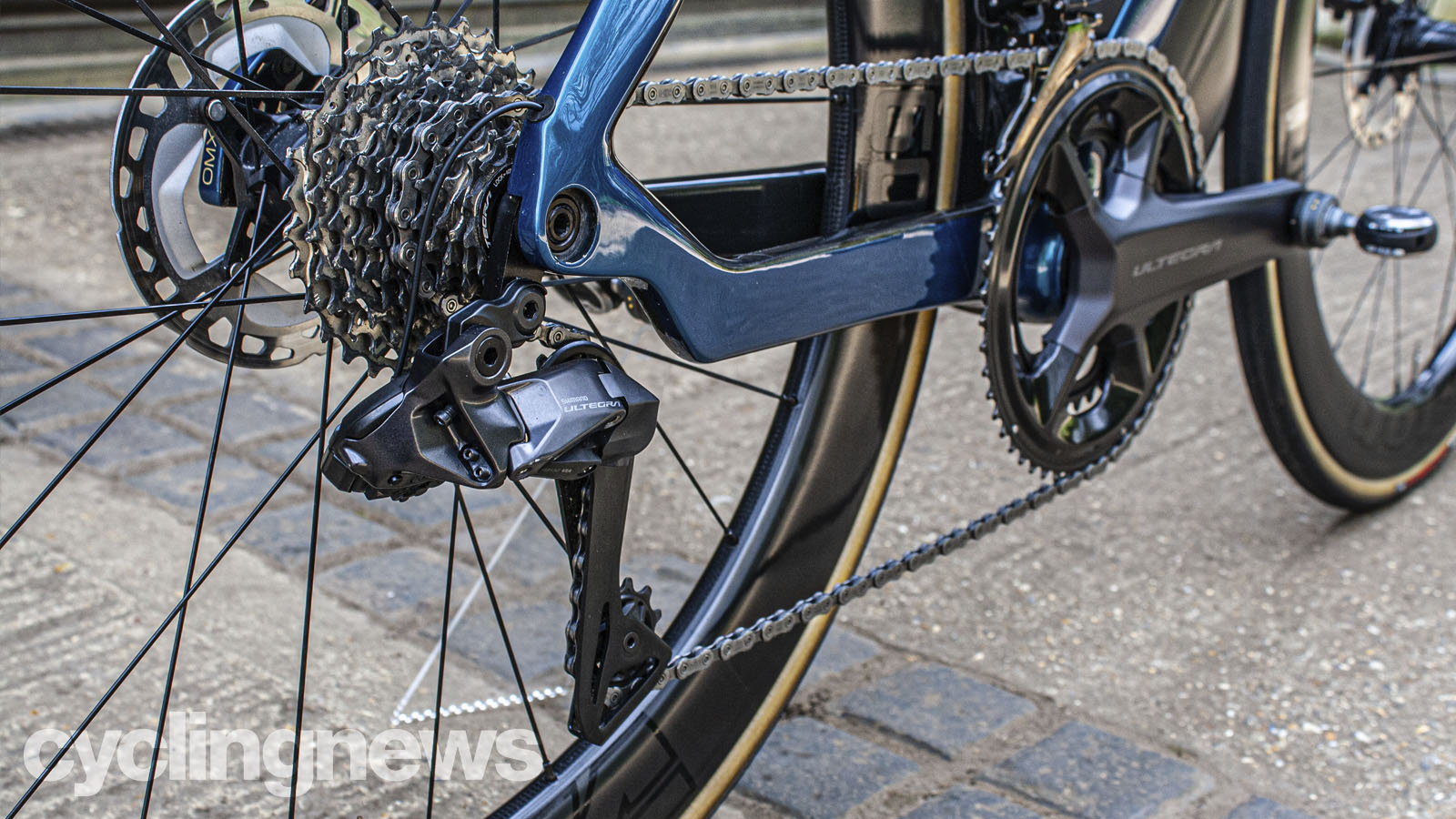
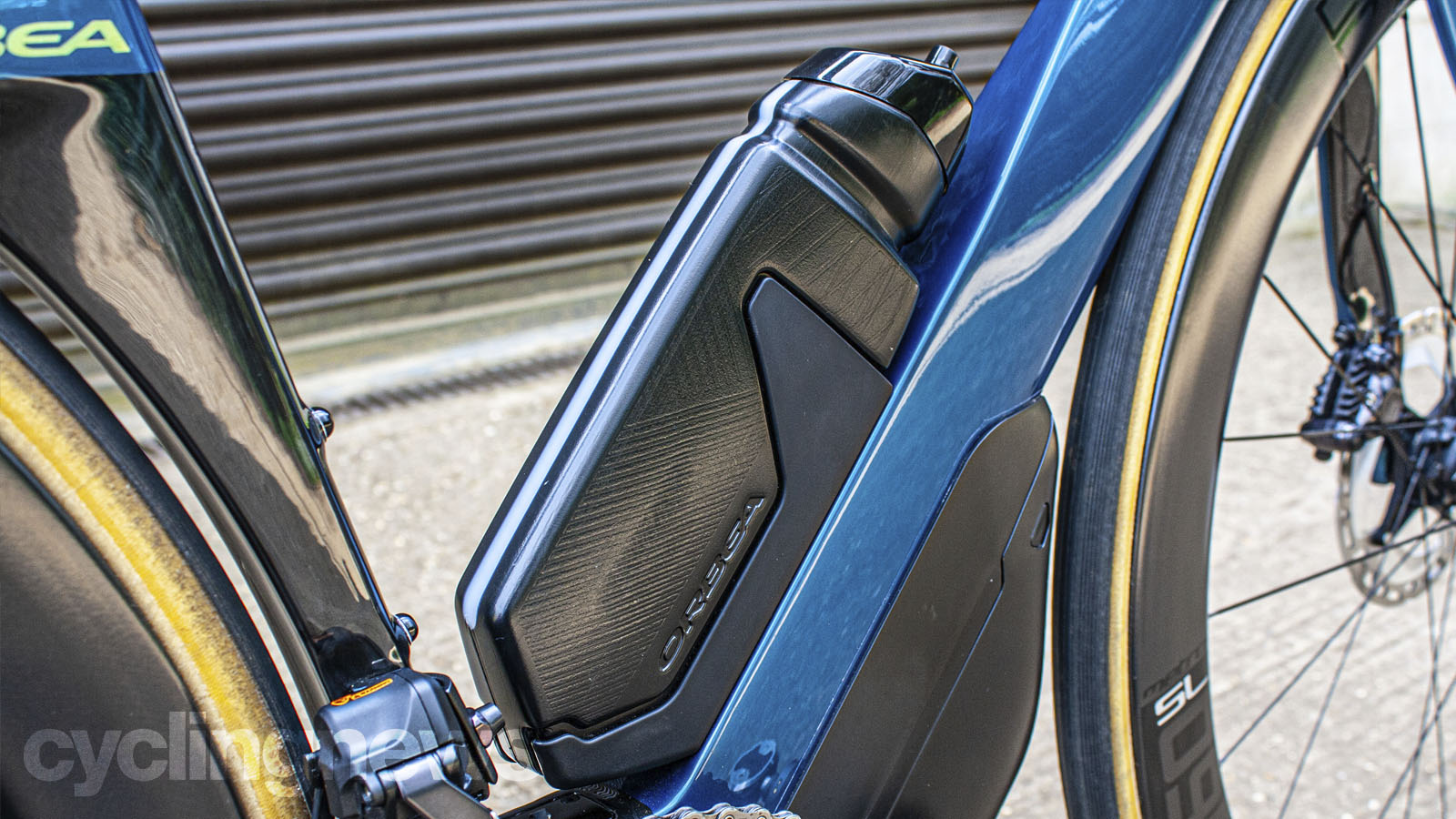
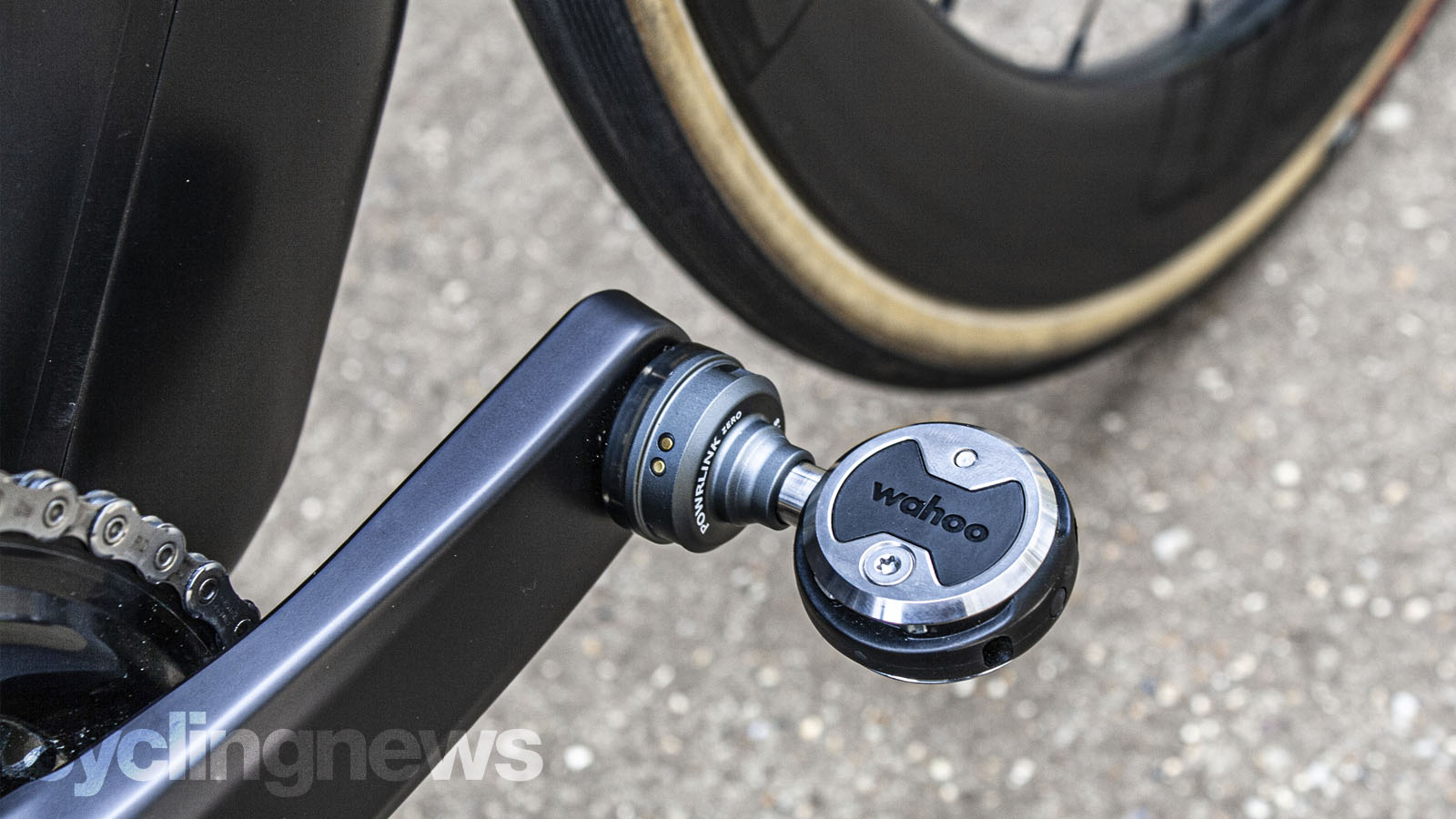
Specifications and build
Despite being the fourth model down from the range-topping M10iLTD, the Orbea Orca Aero M20iLTD is handsomely appointed and built around a Shimano Ultegra R8100 Di2 groupset. Apart from a small weight penalty, the precision in terms of shifting performance and brake modulation is almost indiscernible from the pricier Shimano Dura-Ace R9200 groupset sibling. The hood ergonomics and offset between shifter paddles are the same, too - all of which promote an intuitive and familiar control interface.
There are some bugbears and this surrounds the saddle and wheel choice, but pertain more to the latter if I'm honest. Our test bike came stock from the factory with Vision 40 SC wheels - a great rolling stock option but way too shallow for a bike of this ilk. Something as deep as 50mm should be the minimum requirement and it's only the top two models in the Orca Aero range that follow this principle. After just a couple of rides, I swapped them out for Vision Metron 60 SL wheels wrapped in 25c Vittoria Corsa Graphene tan-wall tyres. Not only did this addition lift the aggressive nature of the overall package, it immediately transformed the character of the bike. It's worth noting that the Orca Aero can accommodate tyres of up to 30c but has been optimised for 25-28mm.
I found the stock Prologo Dimension T4.0 saddle a bit uncomfortable owing to the semi-downward tilt of the tip and traded it for a flatter-profiled Fizik Antares Versus Evo R3 Adaptive, which improved things greatly. Other alterations included trimming the steerer, and removing several spacers, to help drop the front end and improve my on-bike positioning.
The handlebar arrangement might go against the current aero trends - utilising a more traditional bar and stem setup as opposed to a fully integrated system - but the FSA ACR stem is adjustable and has provision to internally house all hoses. And it's a pretty good combination if I'm honest. The bar itself has been fashioned for aero efficiency and is naturally quite flat with pronounced edges at the rear that can cause some discomfort on longer rides - it's shaped in a manner that doesn't promote the best ergonomics. The perk of this particular configuration, however, hinges on the ability to adjust the bars and flip the stem (there are seven stock stem options available ranging from 70 to 130mm in length), or swap them out entirely for something more personalised.
The aero bottle cage and frame storage system didn't bother me much. In fact, I found the storage system pleasantly adequate when it came to housing my spare tube, CO2 canister, tyre levers and Allen key. Pro tip: it's worth properly arranging everything inside to avoid any annoying rattles.
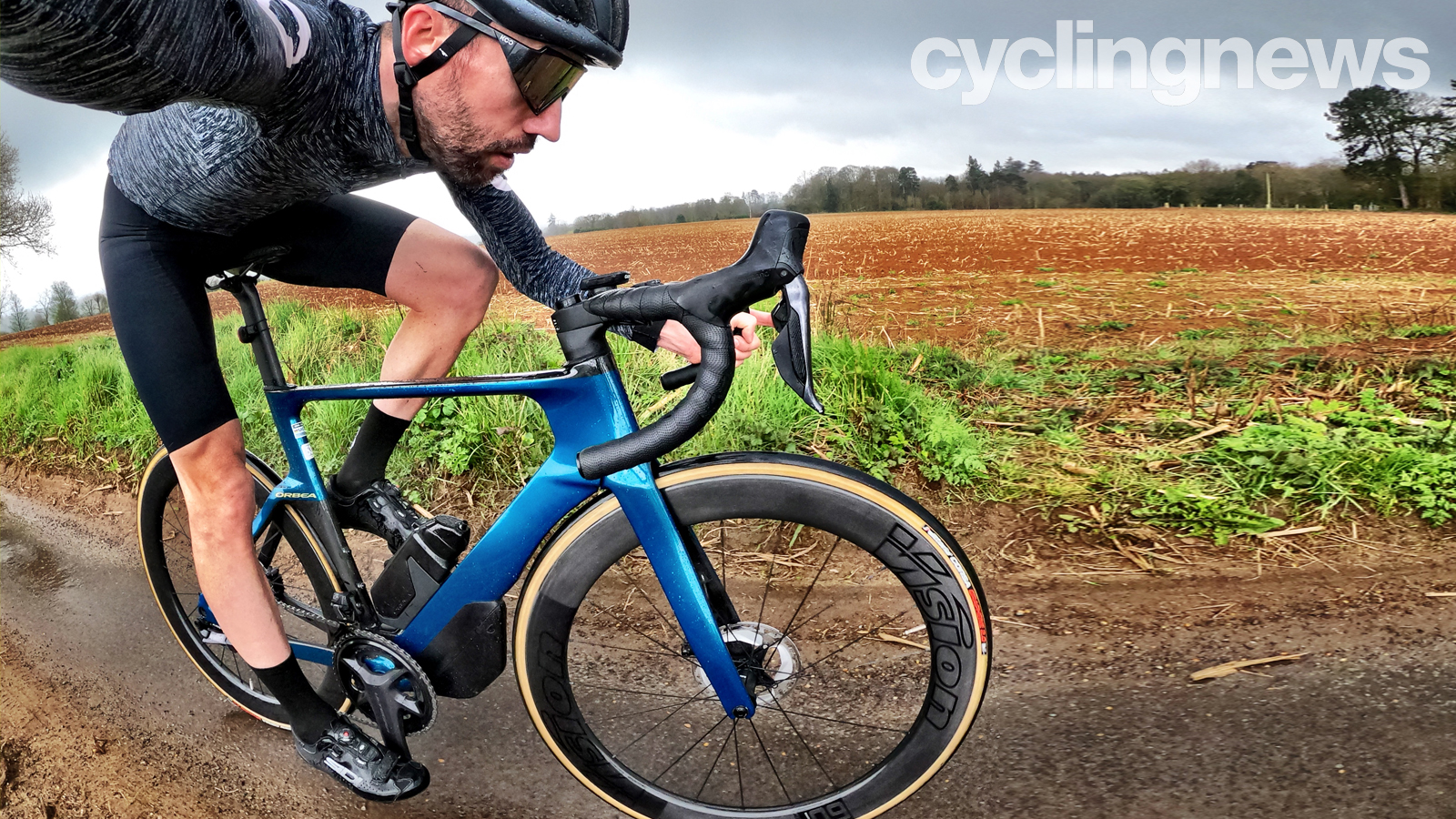
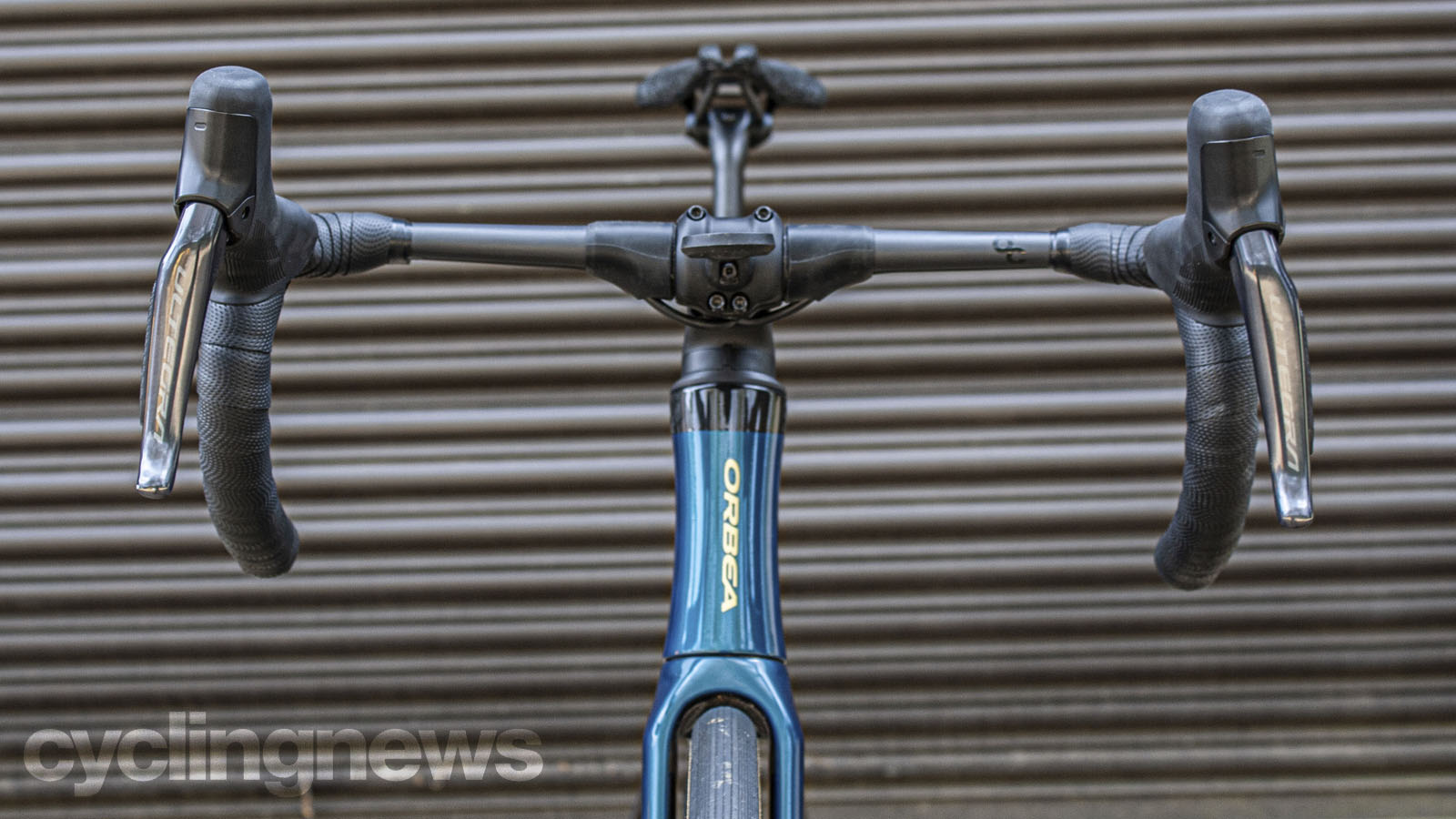
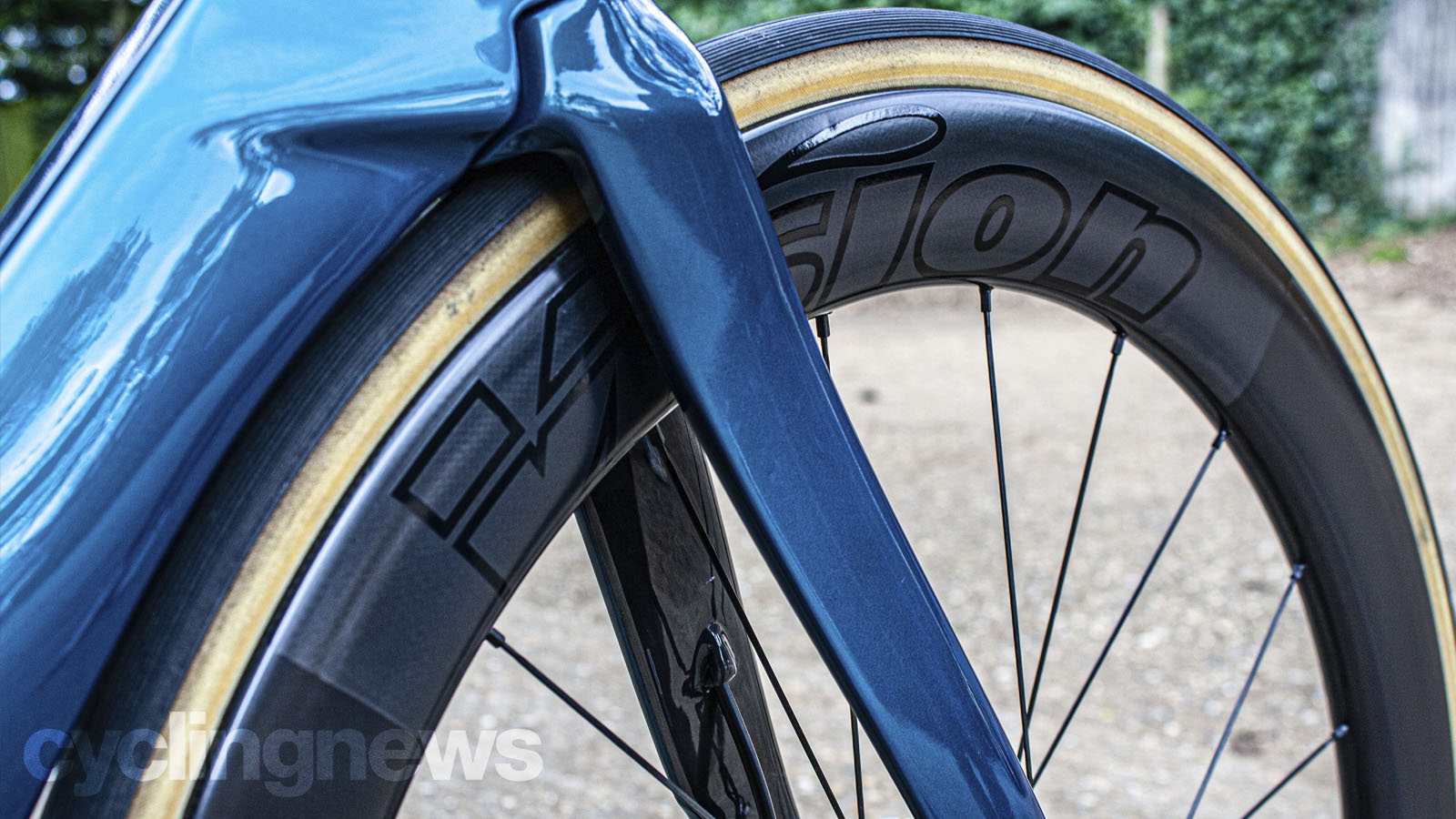
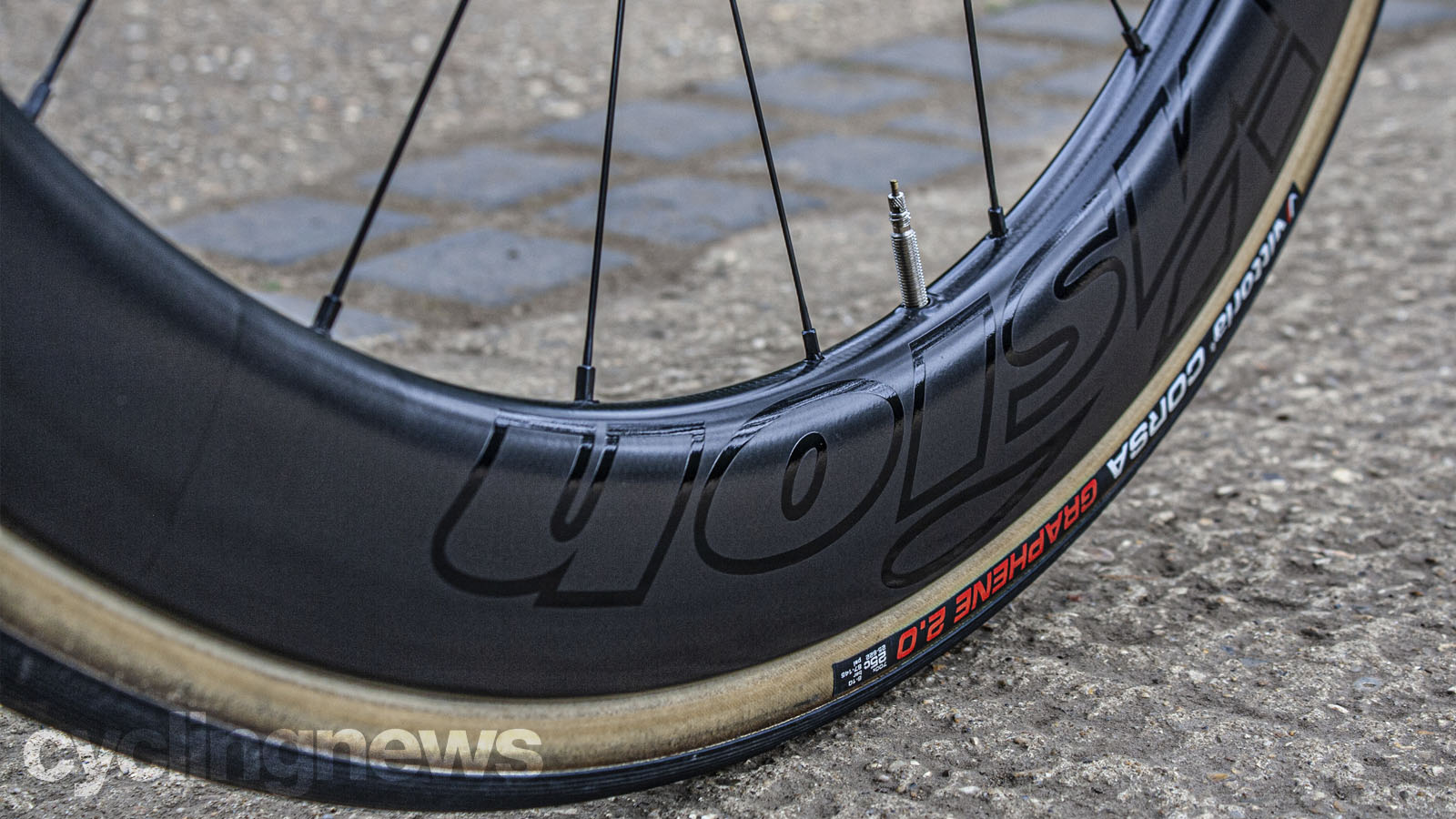
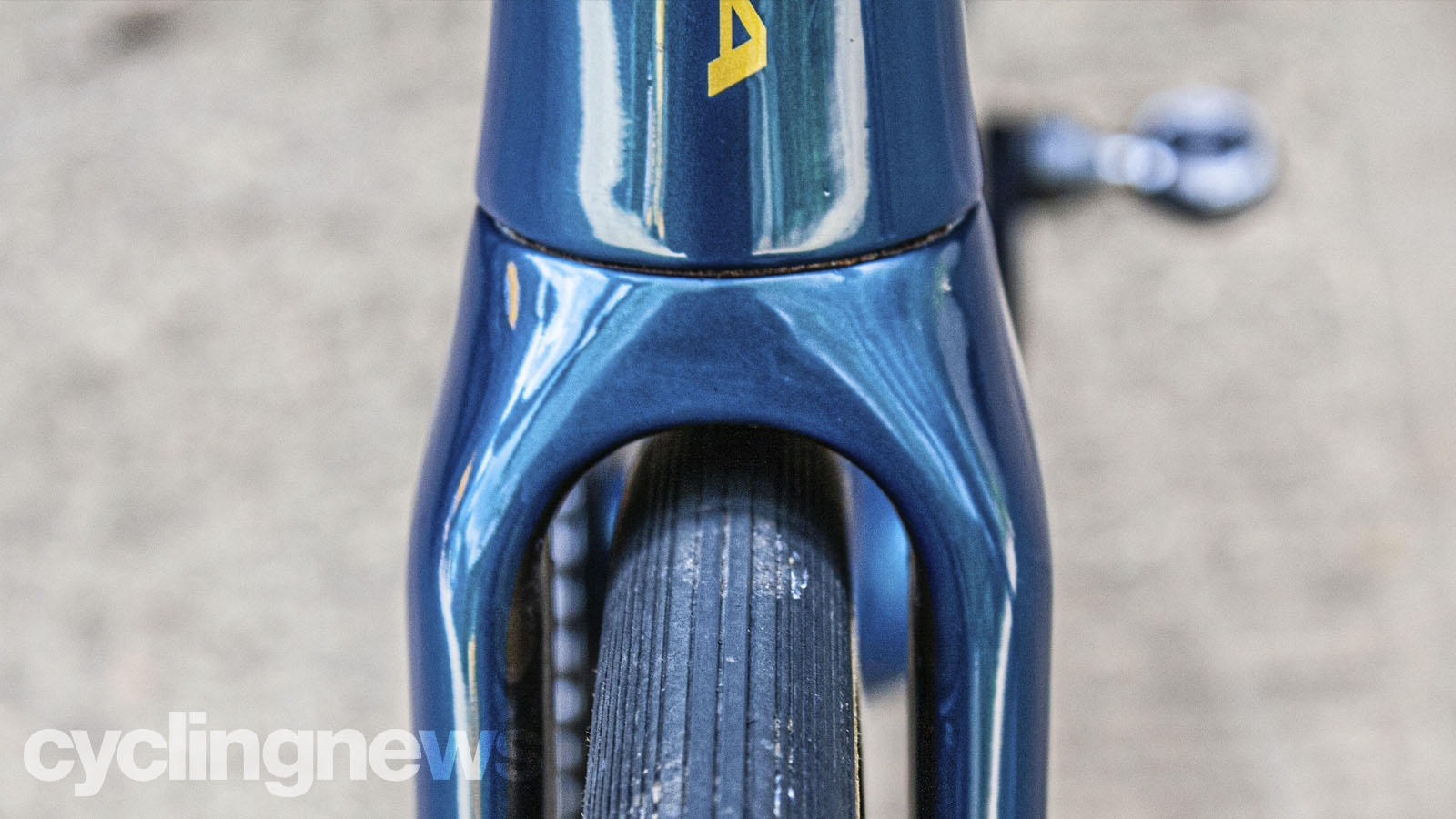
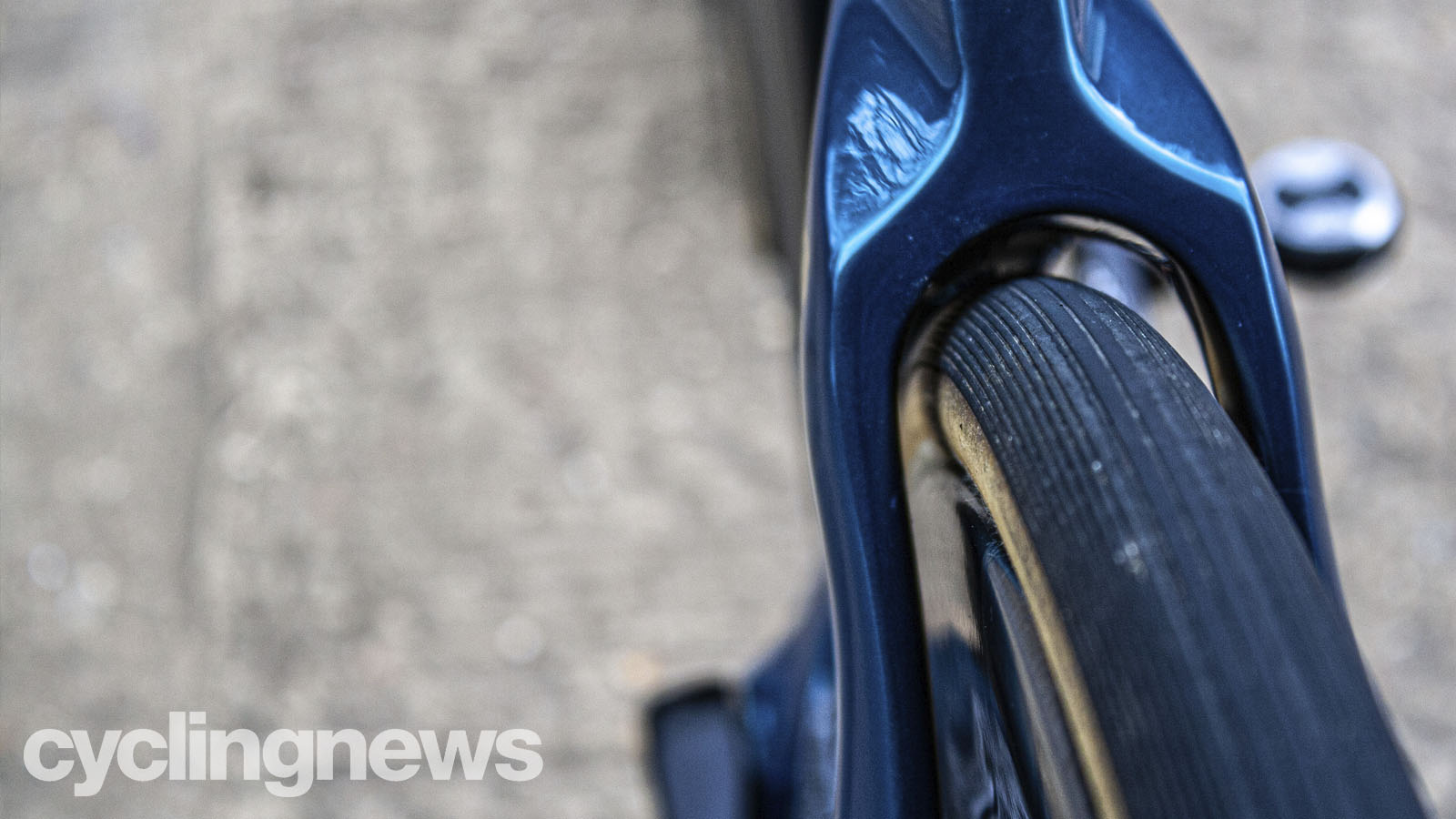
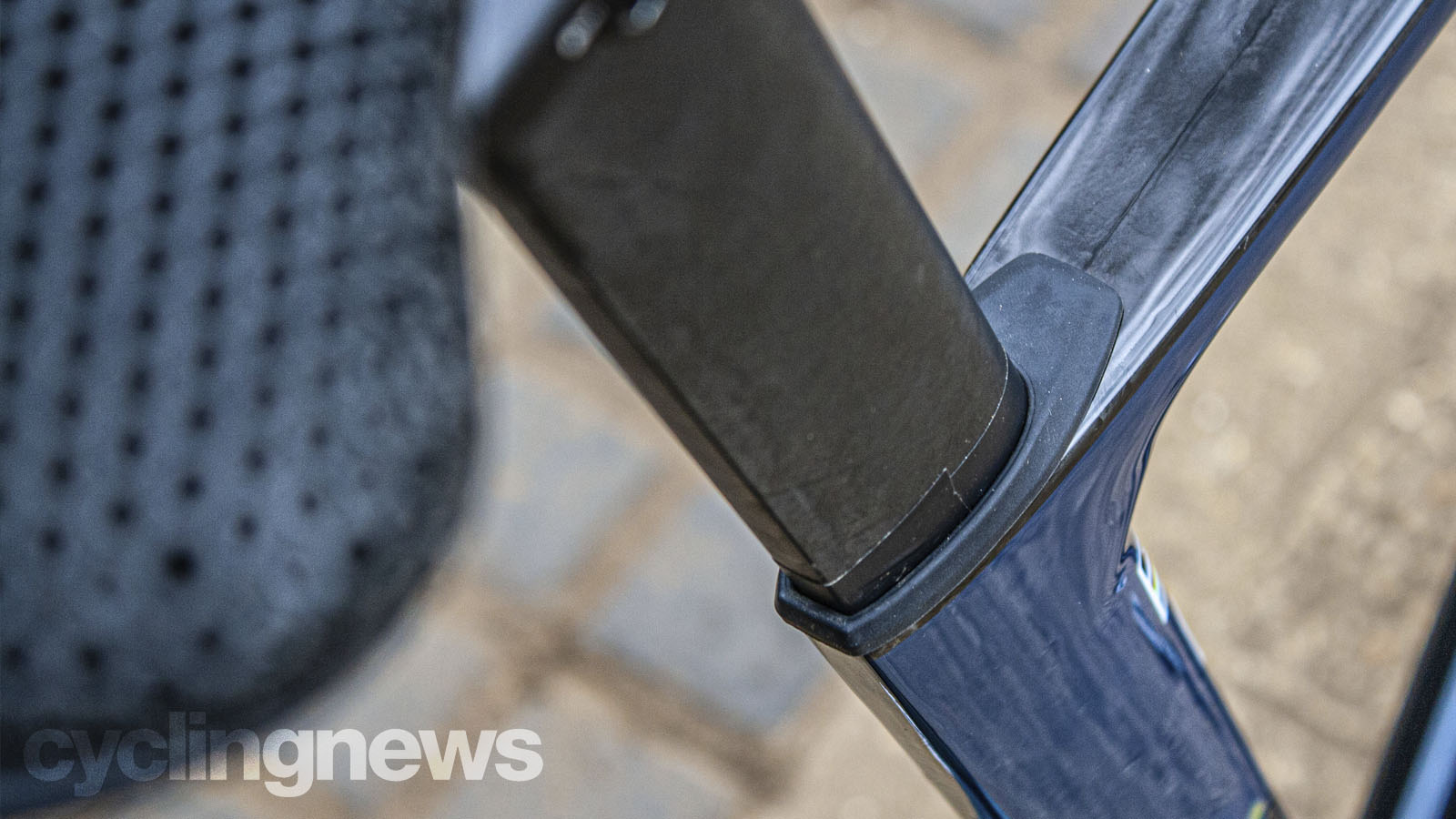
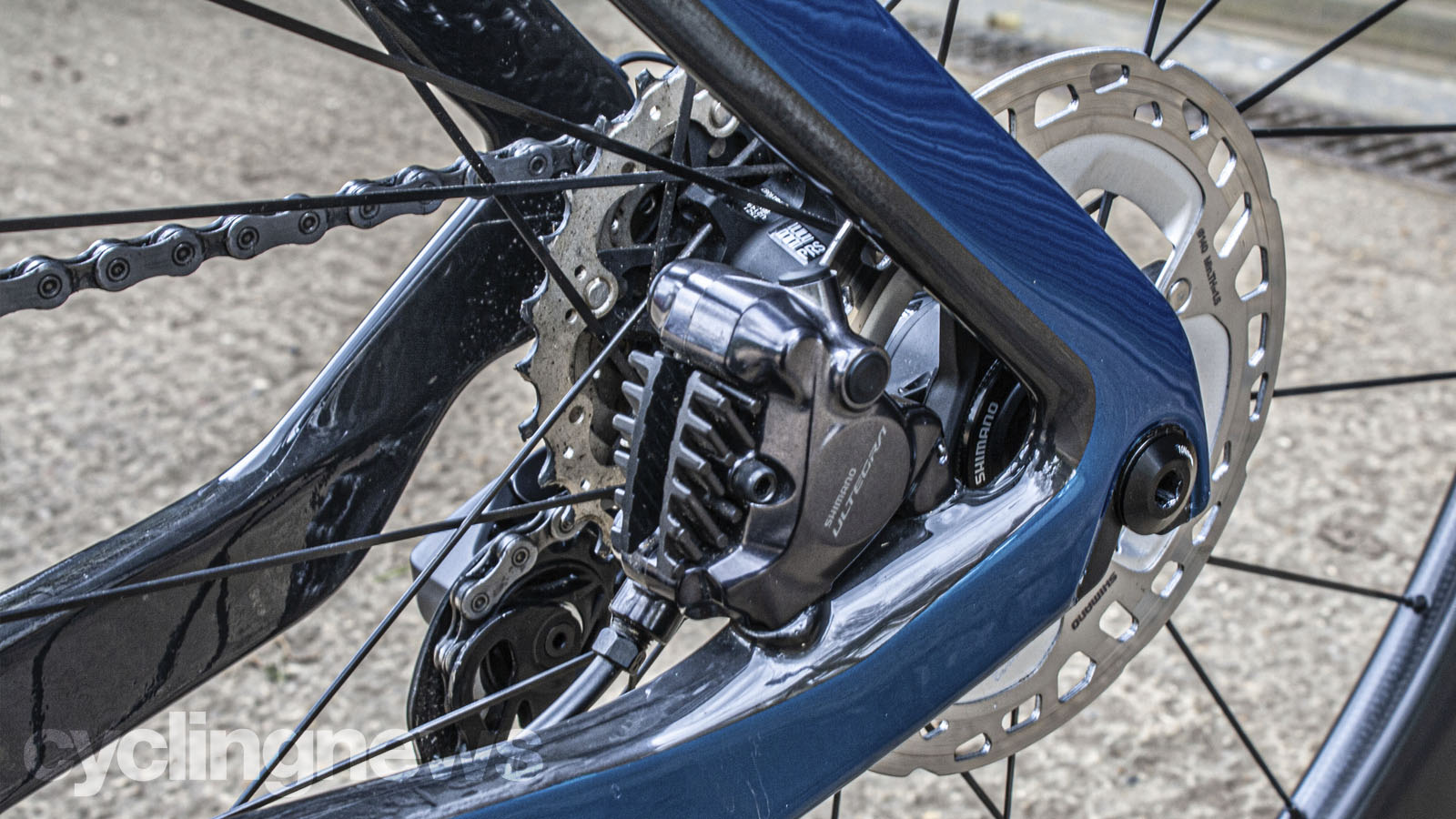
Ride, handling and performance
The Orbea Orca Aero is just sublime once up to speed; it cuts through the air with ease and holds momentum in much the same way as a time trial bike. Swapping out the standard Vision 40 SCs for something more suited to the frame architecture - the Metron SL 60s in this instance - further improves the rate at which it heads for the horizon. This hunger for going faster and faster is an ongoing theme, and the Orca Aero makes light work of dismissing rolling hills. It's only when entering punchier topography or climbs in excess of five minutes or more that its weight starts to become apparent.
Of course, weight isn't the only benchmark for performance in this segment but a sub-8kg build has become an expectation rather than a consideration. The complete build as pictured here tips the scales at 8.57kg with pedals, which is nearly a full kilogram heavier than the Merida Reacto Team-E. At this weight, it's more in line with the 8.2kg BMC Timemachine Road 01 Two and 8.63kg Felt AR Advanced Ultegra Di2.
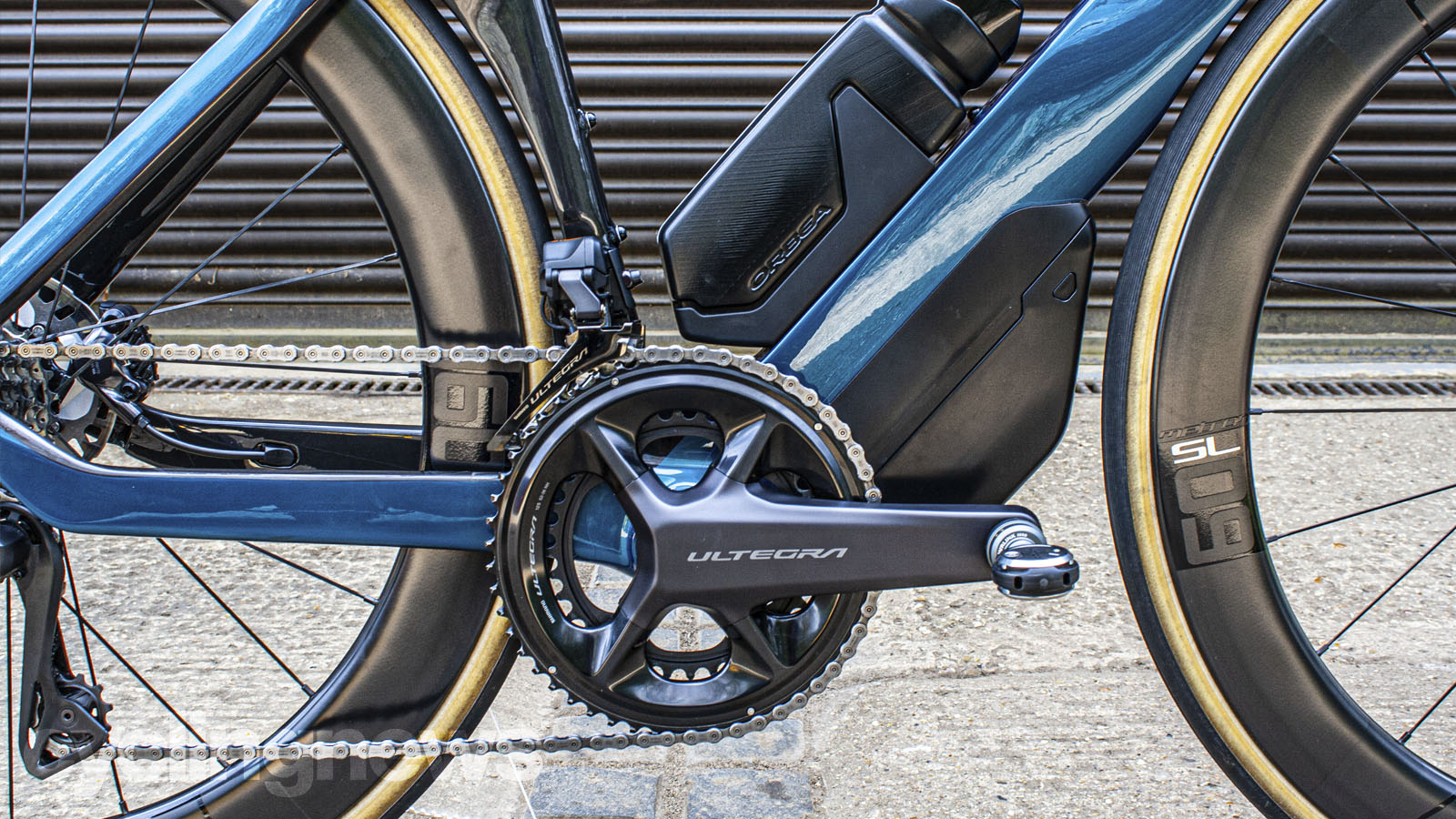
That said, the Orca Aero is an incredibly stiff-yet-compliant machine. In fact, Orbea has managed to strike an incredible balance between frame stiffness and compliancy with its OMX carbon-fibre layup recipe. The company has strengthened the areas that matter most in this regard - the lower spine of the frame where torsional and lateral loads are at their greatest. As a result, power transfer is instant and the bike accelerates almost immediately when summoned, urging you to pedal harder, ride faster.
The ride quality is well damped but doesn't come at the expense of feel and feedback. Of course, using a tubeless tyre set-up will unlock extra comfort and traction, but a regular tyre and inner tube arrangement is very nearly just as good, provided you don't overinflate things. The feedback relayed through the wheels and underpinnings is communicative - high-definition almost, allowing you to really tap into the bike's superlative grip reserves. The lower stack height means you're able to apportion more of your weight over the front wheel, improving grip and front-end trust through fast, tight descents and cornering situations.
This sense of assurance coupled with the powerful, precise and beautifully modulated Shimano Ultegra R8170 hydraulic brake setup makes for one of the best handling bikes I've tested over the past year.
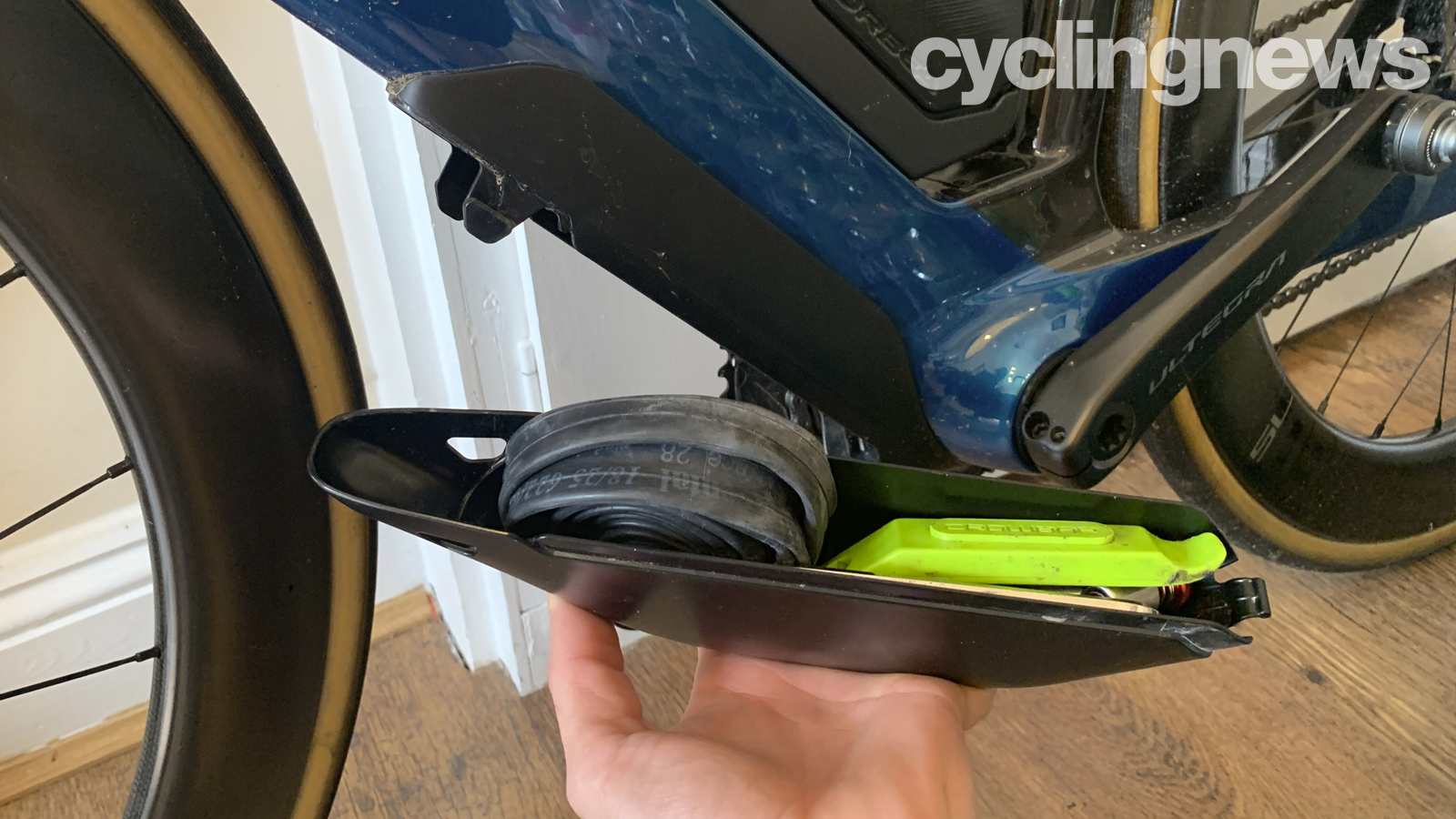
Verdict
For information on Cyclingnews' testing protocol and how our scoring system works, see our how we test page.
The Orbea Orca Aero M120iLTD is a beautifully balanced machine that prioritises speed and comfort over weight. As a result, it holds momentum with ease, changes direction with precision and descends like an anvil thanks to its incredibly balanced underpinnings and sharp, easy-to-modulate Ultegra hydraulic brakes.
While the 8.57kg weight represents the only real blight against its name, there's a lot to like here. Not only does it offer greater adjustability than its integrated bar-stem rivals, it's also easily one of the best-value aero bike propositions currently available.
At £5,999 / $6,899, it undercuts similarly specced rivals from Cannondale (SystemSix Ultegra Di2 at £7,500 /$8,000), Specialized (Tarmac SL7 Expert at £6,850 / $8,300) and Trek (Madone SL7 at £6,550 / $8,849.99) by quite a fair margin.
| Attributes | Notes | Rating |
|---|---|---|
| Design and aesthetics | Despite its rather anonymous styling cues, the Orbea Orca Aero's paintwork is stunningly applied. Subtle model designation references in gold help lift the visual package | 7/10 |
| Components | Stock Vision 40 SC wheels are too shallow for a bike from this category. Mix of Shimano's Ultegra R8100 and Orbea's in-house components help balance things out | 8/10 |
| Performance, handling and geometry | Super-fast once up to speed, with agile handling and a magic-carpet-like ride quality. Impressive considering the stiffness of the frame | 9/10 |
| Weight | At 8.57kg, the Orca Aero is one of the heavier players in its class. While this is not detrimental to its performance, it suffers on super-steep, punchy climbs | 6/10 |
| Value for money | One of the standout bikes in the best aero road bike category when it comes to bang for buck. Difficult to beat in terms of all-round value | 9/10 |
| Overall rating | Row 5 - Cell 1 | 78% |
Logbook: Orbea Orca Aero M120iLTD
- Temperature: 0 to 19 degrees
- Weather: Wet, windy, sunny
- Road surface: Mixed surfaces
- Route: Tarmac, B roads, rolling topography
- Rides: 15
- Mileage: 572km
Tech Specs: Orbea Orca Aero M120iLTD
- Price: £5,999 / $6,899 / €5,999
- Frame: Orbea Orca Aero Carbon OMX disc
- Size: 53cm
- Weight: 8.57kg (actual with pedals)
- Groupset: Shimano Ultegra R8100 Di2
- Crankset: Shimano Ultegra R8100 52/36T
- Cassette: Shimano Ultegra R8100 11-30T
- Wheels: Vision 40 SC Disc (stock), Vision Metron SL 60 (tested)
- Tyres: Vittoria Corsa Graphene 2.0, 25c
- Brakes: Shimano Ultegra R8170 Hydraulic Disc
- Bar/stem: OC RA10 Road Aero Carbon / OC RP10 Road Performance ICR
- Seatpost: Orbea Orca Aero OMX
- Bottle cages: Orbea Aero Bottle and Bottle cage Set
- Saddle: Prologo Dimension T4.0 (stock), Fizik Antares Versus Evo R3 Adaptive (tested)
Aaron was the Tech Editor at Cyclingnews between July 2019 and June 2022. He was born and raised in South Africa, where he completed his BA honours at the University of Cape Town before embarking on a career in journalism. Aaron has spent almost two decades writing about bikes, cars, and anything else with wheels. Prior to joining the Cyclingnews team, his experience spanned a stint as Gear & Digital editor of Bicycling magazine, as well as a time at TopCar as Associate Editor.
Now based in the UK's Surrey Hills, Aaron's life revolves around bikes. He's a competitive racer, Stravaholic, and Zwift enthusiast. He’s twice ridden the Cape Epic, completed the Haute Route Alps, and represented South Africa in the 2022, 2023, 2024 UCI eSports World Championships.
Height: 175cm
Weight: 61.5kg
